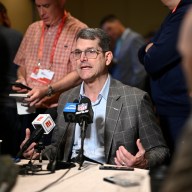At the age of 29, Markus Frind works two hours a day making about $10 million per year. Sounds like a dream job, but you don’t have to become a dot com mogul to retire early and wealthy — making financial plans should start early. No, I’m not just talking about the big bad ‘B’ word. Financial planning goes well beyond budgeting; it’s about building skills that literally pay off.
After graduating, you begin to make a regular income and the game changes. No longer are you on a modest student budget, but budgeting is still vital. This is also the time when some of us are dealing with paying back our student loans. That’s why making a plan is so important at this stage.
“We used to associate the word ‘budget” with uncomfortable-sounding words like ‘denial’ and ‘discipline.’ I think that association is changing,” says money coach Nancy Zimmerman.
She believes people who want to be savvy with their money use budgets to make informed spending choices. “This results in a sense of control and confidence. They can live the lifestyle they want and reach their most important goals. A budget is the most empowering tool you can use to be proactive in managing your money.”
Budgeting is also the key to creating wealth, says Sharman Lawson, a financial coach and trainer. He says by living on a budget a person can start to plant a vision for their financial future.
Robin Taub, a chartered accountant and financial coach, says budgeting teaches you to set goals for yourself.
“It says a lot about your self-discipline,” she adds.
It may not seem like a lot of fun, but learning effective money management skills, especially at a young age, will have a huge impact, according to Mark Hudon, CIM, CFP personal financial coach.
“If you take the view that you are your most important asset (which you are) one of the most important things you can do is to keep score of your financial progress. If you were playing a game you would keep score, otherwise you would soon lose interest. Consider money management or budgeting to be a game.”
So how do we get started?
“Start by looking at how you are spending your money now,” suggests Taub. “You can tell a lot about a person by how they spend their time and money.”
Zimmerman suggests keeping track. “We all think we know, until we actually track it. Then, we discover what we’re really doing! After a few months of judgment-free tracking, you then can review the data and make spending changes as you see fit,” she says.
Hudon agrees that most people don’t have an idea of how much they are spending or where it is going until they start tracking it.
So after you track your money, what’s next? The experts will share their secrets to financial success and disclose the common money mishaps next week.
Kavita Gosyne
Kavita Gosyne, 26, is a vibrant young journalist. She writes about her transition from student to employee and the issues she faces such as office politics.















